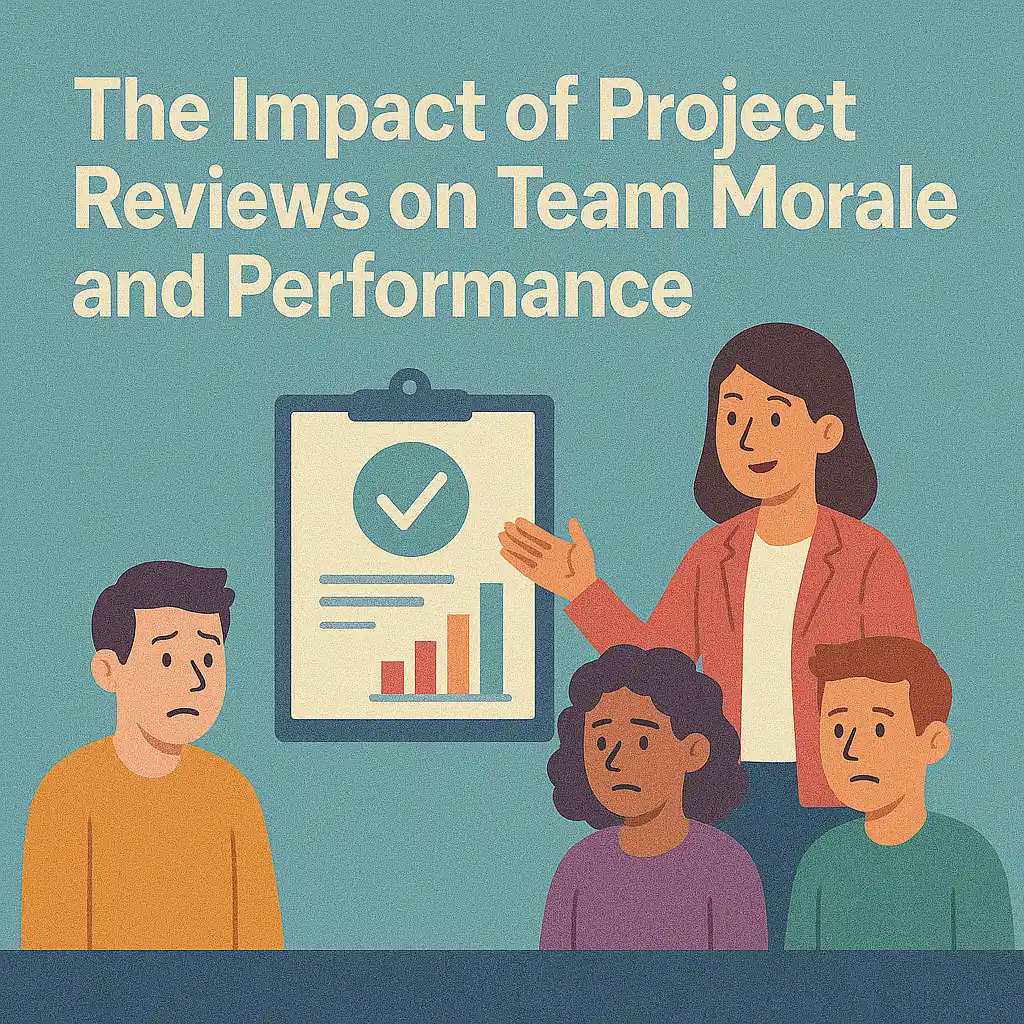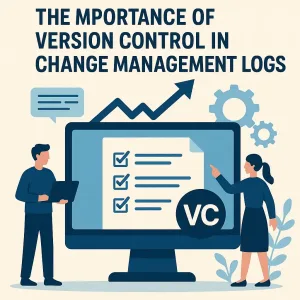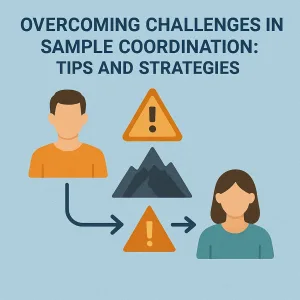Introduction
Project reviews serve as critical checkpoints throughout the project lifecycle. These evaluations are systematic assessments that allow project managers and teams to reflect on progress, identify challenges, and implement necessary adjustments. By providing a structured opportunity for feedback and discussion, project management reviews not only enhance the quality of the project outcomes but also play a pivotal role in shaping team dynamics and morale.
Team morale refers to the overall emotional and psychological state of a team, which can significantly influence their performance and productivity. High morale often leads to increased motivation, collaboration, and creativity, while low morale can result in disengagement and decreased output. In the context of project evaluations, the way feedback is delivered and received can have profound psychological effects on team members. Positive reinforcement can boost confidence and foster a sense of accomplishment, whereas negative criticism, if not handled delicately, can undermine self-esteem and create a toxic work environment.
This blog post will delve into the psychological effects of project reviews on team dynamics, exploring how these evaluations can either uplift or diminish team morale. By examining the interplay between project management reviews and team performance, we aim to provide HR professionals and project managers with insights into fostering a supportive atmosphere that enhances both individual and collective productivity. Understanding these dynamics is essential for creating a thriving project environment where team members feel valued and motivated to contribute their best efforts.
Understanding Project Management Reviews
Project management reviews are critical evaluations conducted at various stages of a project to assess its progress, identify potential risks, and gather feedback from team members. These reviews not only serve as a tool for project managers to ensure that objectives are being met but also play a significant role in shaping team dynamics and morale. Here, we explore the different types of project reviews, their goals, and their importance in fostering continuous improvement.
Types of Project Reviews
- Post-Mortem Reviews: Conducted after project completion, these reviews analyze what went well and what did not. They provide insights into successes and failures, allowing teams to learn from their experiences and apply those lessons to future projects.
- Mid-Project Evaluations: These assessments occur during the project lifecycle and focus on current progress. They help in identifying any deviations from the project plan and allow for timely adjustments to be made.
- Peer Reviews: Involving team members evaluating each other’s work, peer reviews foster collaboration and accountability. They encourage open communication and can lead to improved quality of work through constructive feedback.
Goals of Project Reviews
- Assessing Progress: One of the primary goals of project reviews is to evaluate whether the project is on track to meet its deadlines and objectives. This involves analyzing timelines, budgets, and resource allocation.
- Identifying Risks: Reviews help in pinpointing potential risks that could derail the project. By discussing these risks openly, teams can develop mitigation strategies to address them proactively.
- Gathering Feedback: Collecting input from team members is essential for understanding different perspectives and experiences. This feedback can lead to actionable insights that enhance project execution and team collaboration.
Role in Continuous Improvement
Project management reviews are integral to the concept of continuous improvement. By regularly evaluating processes and outcomes, teams can identify areas for enhancement and implement changes that lead to better performance. This iterative approach not only improves project outcomes but also boosts team morale, as members feel their contributions are valued and that they are part of a learning organization.
Team Morale: The Psychological Backbone
Team morale is a crucial element in the success of any project, serving as the psychological backbone that supports team dynamics and overall performance. Understanding its components and the psychological factors that influence it can help project managers and HR professionals foster a more productive work environment.
Defining Team Morale
Team morale can be defined as the collective spirit, motivation, and satisfaction of a group working towards a common goal. It encompasses several key components:
- Motivation: The drive that compels team members to perform at their best. High motivation often leads to increased productivity and creativity.
- Satisfaction: The contentment team members feel regarding their roles, responsibilities, and the work environment. High satisfaction levels can reduce turnover and enhance commitment.
- Engagement: The degree to which team members are involved in their work and connected to the project’s objectives. Engaged teams are more likely to collaborate effectively and innovate.
Psychological Factors Influencing Team Morale
Several psychological factors can significantly impact team morale:
- Recognition and Feedback: Regular acknowledgment of achievements and constructive feedback can boost morale. Celebrating successes and learning from failures fosters a positive atmosphere where team members feel valued and motivated to improve [2][6].
- Clear Communication: Open lines of communication help in addressing concerns and clarifying expectations. When team members feel heard, their engagement and satisfaction levels increase [3][5].
- Supportive Leadership: Leaders who provide support and guidance can enhance team morale. A positive leadership style encourages team members to take risks and express their ideas without fear of criticism [6][7].
The Impact of Morale on Performance and Project Outcomes
The level of team morale can have profound effects on performance and project outcomes:
- High Morale: Teams with high morale tend to exhibit greater collaboration, creativity, and resilience. They are more likely to meet deadlines, exceed project goals, and adapt to challenges effectively. High morale also correlates with lower absenteeism and turnover rates, which can lead to cost savings and a more stable project environment [2][6].
- Low Morale: Conversely, low morale can lead to disengagement, decreased productivity, and higher turnover. Teams struggling with morale may experience conflicts, lack of motivation, and a decline in the quality of work. This can ultimately jeopardize project timelines and outcomes, leading to missed deadlines and unsatisfactory results [1][4][6].
The Dual Impact of Project Reviews
Project management reviews play a crucial role in shaping team dynamics, influencing both morale and performance. Understanding the psychological effects of these evaluations can help HR professionals and project managers create a more supportive and productive work environment. Below, we explore the dual impact of project reviews, highlighting both their positive and negative psychological effects.
Positive Psychological Impacts of Project Reviews
- Recognition and Validation: Project reviews often serve as a platform for acknowledging individual and team contributions. When team members receive recognition for their hard work, it fosters a sense of value and belonging, which can significantly enhance motivation and engagement. Positive feedback during reviews can lead to increased job satisfaction and a stronger commitment to team goals [2].
- Accountability: Regular evaluations instill a sense of accountability among team members. Knowing that their work will be reviewed encourages individuals to maintain high standards and take ownership of their responsibilities. This accountability can lead to improved performance and a more cohesive team dynamic, as members feel responsible not only for their tasks but also for supporting their colleagues [3].
- Growth Opportunities: Project reviews provide a structured opportunity for feedback and learning. Constructive criticism can highlight areas for improvement, allowing team members to develop their skills and competencies. This focus on growth can create a culture of continuous improvement, where team members feel empowered to take risks and innovate without fear of failure [4][5].
Negative Psychological Effects of Project Reviews
- Stress and Anxiety: While project reviews can be beneficial, they can also induce stress and anxiety among team members. The pressure to perform well and the fear of negative evaluations can lead to a toxic atmosphere, where individuals may feel overwhelmed or fearful of making mistakes. This stress can detract from overall team morale and hinder performance [3][6].
- Fear of Criticism: A culture that emphasizes harsh criticism during project reviews can create an environment of fear. Team members may become reluctant to share ideas or voice concerns, stifling creativity and open communication. This fear can lead to disengagement and a lack of collaboration, ultimately undermining team dynamics [7].
- Demotivation: Negative feedback, if not delivered constructively, can demotivate team members. When individuals feel that their efforts are not appreciated or that they are constantly under scrutiny, it can lead to decreased morale and productivity. This demotivation can create a cycle of poor performance, as disengaged team members may not put forth their best efforts [3][8].
Case Studies and Examples
- Case Study 1: A software development team implemented regular project reviews that focused on positive reinforcement and constructive feedback. As a result, team morale improved significantly, leading to a 20% increase in project delivery speed and a notable rise in employee satisfaction scores. Team members reported feeling more valued and engaged in their work, which translated into higher productivity [2][4].
- Case Study 2: Conversely, a marketing team that relied heavily on critical feedback during project evaluations experienced a decline in morale. Team members reported feeling anxious and demotivated, leading to increased turnover rates. The organization recognized the need to shift its review process to emphasize recognition and growth, resulting in improved team dynamics and performance over time [3][6].
Best Practices for Conducting Project Reviews
Conducting effective project reviews is essential not only for evaluating project outcomes but also for fostering a positive team environment that enhances morale and performance. Here are some best practices that HR professionals and project managers can implement to ensure that project reviews are constructive and beneficial for team dynamics:
- Create a Positive Atmosphere: Begin the review process by expressing positive expectations about team members’ abilities. This approach can significantly boost team morale and encourage a more open and collaborative environment during discussions [1]. Recognizing individual and team contributions also plays a crucial role in motivating team members [4].
- Encourage Constructive Feedback: It is vital to incorporate constructive feedback into the review process. This can be achieved by encouraging peer feedback, which allows team members to provide input on each other’s performance. Such a 360-degree feedback mechanism not only enhances the quality of the evaluation but also promotes a culture of continuous improvement and mutual respect among team members [3].
- Foster Open Dialogue: Establishing a safe space for open dialogue is crucial. Team members should feel comfortable sharing their thoughts and concerns without fear of negative repercussions. This can be facilitated by setting ground rules for discussions that emphasize respect and confidentiality, ensuring that everyone’s voice is heard [9].
- Utilize Comprehensive Evaluation Methods: Employ a combination of quantitative and qualitative data to measure project success and team performance. This can include project metrics, feedback surveys, peer reviews, and self-assessments. By using diverse evaluation methods, project managers can gain a holistic view of the project and its impact on the team [6].
- Implement Follow-Up Actions: After the review, it is essential to take follow-up actions based on the feedback received. This could involve addressing any identified areas for improvement, recognizing achievements, and setting new goals. By demonstrating that feedback leads to tangible changes, project managers can maintain team morale and engagement, reinforcing the value of the review process [10].
- Conduct Post-Project Reviews: Regularly scheduled post-project reviews are critical for evaluating project outcomes and gathering feedback from stakeholders. These reviews help identify best practices and areas for improvement, ensuring that lessons learned are documented and utilized in future projects [2][10].
By implementing these best practices, HR professionals and project managers can enhance the project review process, ultimately leading to improved team dynamics, higher morale, and better overall performance.
Measuring the Impact of Reviews on Performance
The significance of project reviews extends beyond mere evaluation; they play a crucial role in shaping team morale and overall performance. Understanding how to measure the impact of these reviews can provide valuable insights for HR professionals and project managers alike. Here are some key points to consider:
Metrics for Measuring Team Morale
- Surveys: Conducting regular employee satisfaction surveys can help gauge team morale. These surveys can include questions about team dynamics, communication, and individual satisfaction with project outcomes. Anonymity can encourage honest feedback, providing a clearer picture of team sentiment.
- Performance Metrics: Analyzing performance metrics such as productivity rates, quality of deliverables, and adherence to deadlines can indicate how project reviews influence team effectiveness. A decline in performance post-review may suggest that the feedback was not well-received or actionable.
- Turnover Rates: Monitoring turnover rates can serve as a long-term indicator of team morale. High turnover following project reviews may signal dissatisfaction with the review process or outcomes, prompting a need for reassessment of how feedback is delivered and utilized.
Correlating Project Review Outcomes with Team Performance Indicators
To effectively correlate project review outcomes with team performance indicators, consider the following approaches:
- Before-and-After Comparisons: Analyze team performance metrics before and after project reviews to identify any changes. This can help determine whether the feedback provided during reviews leads to tangible improvements or if it has a detrimental effect on morale.
- Linking Feedback to Performance Goals: Establish clear performance goals that are directly tied to the feedback given during project reviews. By tracking progress against these goals, project managers can assess whether the reviews are fostering a culture of continuous improvement.
- Qualitative Analysis: In addition to quantitative metrics, qualitative feedback from team members about the review process can provide context to performance changes. Understanding team members’ perceptions of the reviews can help identify areas for improvement in the evaluation process.
Tools and Techniques for Ongoing Assessment and Improvement
Implementing tools and techniques for ongoing assessment can enhance the effectiveness of project reviews:
- Project Management Software: Utilize project management tools that offer features for tracking performance metrics, team feedback, and project outcomes. These platforms can streamline the review process and provide real-time data for analysis.
- Regular Check-Ins: Establish a routine of regular check-ins or feedback sessions outside of formal project reviews. This can create a culture of open communication and continuous feedback, allowing teams to address issues promptly and maintain morale.
- Training and Development: Invest in training for project managers on effective feedback delivery and team engagement strategies. Equipping leaders with the skills to conduct constructive reviews can significantly impact team morale and performance.
By focusing on these metrics, correlations, and tools, HR professionals and project managers can better understand the psychological effects of project evaluations on team dynamics. This understanding can lead to more effective project management practices that not only enhance performance but also foster a positive team environment.
Conclusion
The significance of project reviews extends beyond mere performance metrics; they play a crucial role in shaping team morale and dynamics. Understanding the psychological effects of these evaluations is essential for fostering a productive work environment. Here are some key insights to consider:
- Psychological Impact: Project reviews can significantly influence team morale. When conducted thoughtfully, they can enhance communication, build trust, and promote a sense of unity among team members. Conversely, poorly executed reviews may lead to feelings of anxiety and disengagement, which can adversely affect performance outcomes [1][6].
- Balancing Evaluation and Morale: It is vital for HR professionals and project managers to recognize the dual impact of project reviews. While assessing project outcomes is important, prioritizing team morale during these evaluations can lead to a more engaged and motivated workforce. This balance can be achieved through continuous feedback, open communication, and a supportive review process that encourages team members to share their insights and experiences [4][9].
In conclusion, a balanced approach to project reviews that considers both psychological effects and performance outcomes is essential for cultivating high-performing teams. By prioritizing team morale, organizations can create a more positive and productive work environment, leading to successful project outcomes and satisfied employees.
Find out more about Shaun Stoltz https://www.shaunstoltz.com/about/.
This post was written by an AI and reviewed/edited by a human.



